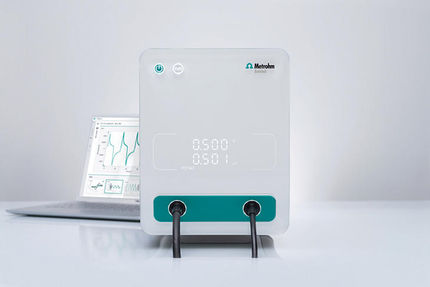To use all functions of this page, please activate cookies in your browser.
my.chemeurope.com
With an accout for my.chemeurope.com you can always see everything at a glance – and you can configure your own website and individual newsletter.
- My watch list
- My saved searches
- My saved topics
- My newsletter
Breccia
Breccia (pronounced /ˈbrɛtʃiə, ˈbrɛʃiə/, Italian: breach) is a rock composed of angular fragments of rocks or minerals in a matrix, that is a cementing material, that may be similar or different in composition to the fragments. A breccia may have a variety of different origins, as indicated by the named types including sedimentary breccia, tectonic breccia, igneous breccia, impact breccia and hydrothermal breccia. Product highlight
NomenclatureBreccias can be classified by their constituents, mode of occurrence, constituent fragment size, the types of clasts and source of clasts. Several textural terms are used to describe the morphology and textural variations observed in breccias. Milling Autobrecciation TypesSedimentarySedimentary breccias are a type of clastic sedimentary rock which are composed of angular to subangular, randomly oriented clasts of other sedimentary rocks. They are formed by either submarine debris flows, avalanches, mud flow or mass flow in an aqueous medium. Technically, turbidites are a form of debris flow deposit and are a fine-grained peripheral deposit to a sedimentary breccia flow. The other derivation of sedimentary breccia is as angular, poorly sorted, very immature fragments of rocks in a finer grained groundmass which are produced by mass wasting. These are, in essence, lithified colluvium. Thick sequences of sedimentary (colluvial) breccias are generally formed next to fault scarps in grabens. In the field, it may at times be difficult to distinguish between a debris flow sedimentary breccia and a colluvial breccia, especially if one is working entirely from drilling information. Sedimentary breccias are an integral host rock for many SEDEX ore deposits. Sedimentary breccias can be described as 'arenaceous', from the Latin word harena meaning 'sand', which are sandy or pebbly in nature. A conglomerate by contrast is a sedimentary rock composed of rounded fragments or clasts of pre-existing rocks. Both breccias and conglomerates are composed of fragments averaging greater than 2 millimeters in size. The angular shape of the fragments indicate that the material has not been transported far from its source. Breccias indicate accumulation in a juvenile stream channel or accumulations because of gravity erosion. Talus slopes might become buried and the talus cemented in a similar manner. CollapseCollapse breccias form where there has been a collapse of rock, typically in a karst landscape. Collapse breccias form blankets in highly weathered regolith due to the removal of rock components by dissolution. TectonicTectonic breccias form similarly, where two tectonic plates create a crumbling of the interface, by their relative movements. FaultFault breccias result from the grinding action of two fault blocks as they slide past each other. Subsequent cementation of these broken fragments may occur by means of mineral matter introduced by groundwater. IgneousIgneous clastic rocks can be divided into two classes
VolcanicVolcanic pyroclastic rocks are formed by explosive eruption of lava and any rocks which are entrained within the eruptive column. This may include rocks plucked off the wall of the magma conduit, or physically picked up by the ensuing pyroclastic surge. Lavas, especially rhyolite and dacite flows, tend to form clastic volcanic rocks by a process known as autobrecciation. This occurs when the thick, nearly solid lava breaks up into blocks and these blocks are then reincorporated into the lava flow again and mixed in with the remaining liquid magma. The resulting breccia is uniform in rock type and chemical composition. Lavas may also pick up foreign rock fragments, especially if flowing over unconsolidated rubble on the flanks of a volcano, and these form volcanic breccias, also called pillow breccias. The volcanic breccia environment is transitional into the plutonic breccia environment in the volcanic conduits of explosive volcanoes, where lava tends to solidify and may be repeatedly shattered by ensuing eruptions. This is typical of volcanic caldera settings. IntrusiveClastic rocks are also commonly found in shallow subvolcanic intrusions such as porphyry stocks, granites and kimberlite pipes, where they are transitional with volcanic breccias. Intrusive rocks can become brecciated in appearance by multiple stages of intrusion, especially if fresh magma is intruded into partly consolidated or solidified magma. This may be seen in many granite intrusions where later aplite veins form a late-stage stockwork through earlier phases of the granite mass. When particularly intense, the rock may appear as a chaotic breccia. Clastic rocks in mafic and ultramafic intrusions are known and form via several processes;
ImpactImpact breccias are thought to be diagnostic of an impact event such as an asteroid or comet striking the earth, and are usually found at impact craters. Impact breccia, a type of impactite, forms during the process of impact cratering when large meteorites or comets impact with the Earth or other rocky planets or asteroids. Breccia of this type may be present on or beneath the floor of the crater, in the rim, or in the ejecta expelled beyond the crater. Impact breccia may be identified by its occurrence in or around a known impact crater, and/or an association with other products of impact cratering such as shatter cones, impact glass, shocked minerals, and chemical and isotopic evidence of contamination with extraterrestrial material (e.g. iridium and osmium anomalies). HydrothermalBreccia-hosted ore deposits are ubiquitous. The morphology of breccias associated with ore deposits varies from tabular sheeted veins and clastic dikes associated with overpressured sedimentary strata, to large-scale intrusive diatreme breccias, or even some synsedimentary diatremes formed solely by the overpressure of pore fluid within sedimentary basins. Hydrothermal breccias are usually formed by hydrofracturing of rocks by highly pressured hydrothermal fluids. They are typical of the epithermal ore environment and are intimately associated with intrusive-related ore deposits such as skarns, greisens and porphyry-related mineralisation. Hydrothermal breccias usually form at shallow crustal levels (<1 km) between 150 to 350oC, when seismic activity (an earthquake) causes a void to open along a fault deep underground. The void draws in hot water and as pressure in the cavity drops, the water violently boils - akin to an underground geyser. In addition, the sudden opening of a cavity causes rock at sides of the fault to destabilise and implode inwards, the broken rock gets caught up in a churning mixture of rock, steam and boiling water. Rock fragments hit each other and sides of the fault, and attrition quickly rounds angular breccia fragments. Volatile gasses are lost to the steam phase as boiling continues, in particular CO2. As a result, the chemistry of the fluids change and ore minerals rapidly precipitate. Epithermal deposits are mined for copper, silver and gold. In the mesothermal regime, at much greater depths, over pressured fluids under lithostaic pressure can be released during seismic activity associated with mountain building. The pressurised fluids ascend towards shallower crustal levels that are under lower hydrostatic pressure. On their journey, high-pressure fluids crack rock by hydrofracturing, forming an angular jigsaw breccia. Rounding of rock fragments less common in the mesothermal regime, as the formational event is brief. If boiling occurs, methane and hydrogen sulphide may be lost to the steam phase and ore may precipitate. Mesothermal deposits are often mined for gold. Ornamental usesThe striking visual appearance of breccias has for millennia made them a popular sculptural and architectural material. Breccia was used on a limited scale by the ancient Egyptians - one of the best-known examples is the statue of the goddess Tawaret in the British Museum). It was regarded by the Romans as an especially precious stone and was often used in high-profile public buildings. Many types of marble are brecciated, such as Breccia Oniciata or Breche Nouvelle. It is most often used as an ornamental or facing material in walls and columns. A particularly striking example can be seen in the Pantheon in Rome, which features two gigantic columns of pavonazzetto, a breccia coming from Phrygia (in modern Turkey). Pavonazzetto obtains its name from its extremely colourful appearance, which is reminiscent of a peacock's feathers (pavone is "peacock" in Italian). See also
ReferencesJébrak, M. (1997). "Hydrothermal breccias in vein-type ore deposits: A review of mechanisms, morphology and size distribution". Ore Geology Reviews 12: 111-134. doi:doi:10.1016/S0169-1368(97)00009-7. Retrieved on 2007. Mitcham, T.W. (1974). "Origin of breccia pipes". American Journal of Science 69: 412-413. Retrieved on 2007. Sibson, R.H. (1987). "Earthquake rupturing as a mineralizing agent in hydrothermal systems". Geology 15: 701-704. Retrieved on 2007. Sibson, R.H. (2000). "Fluid involvement in normal faulting". Journal of Geodynamics 29: 469-499. doi:doi:10.1016/S0264-3707(99)00042-3. Retrieved on 2007. Categories: Sedimentary rocks | Igneous rocks | Metamorphic rocks |
|
| This article is licensed under the GNU Free Documentation License. It uses material from the Wikipedia article "Breccia". A list of authors is available in Wikipedia. |







